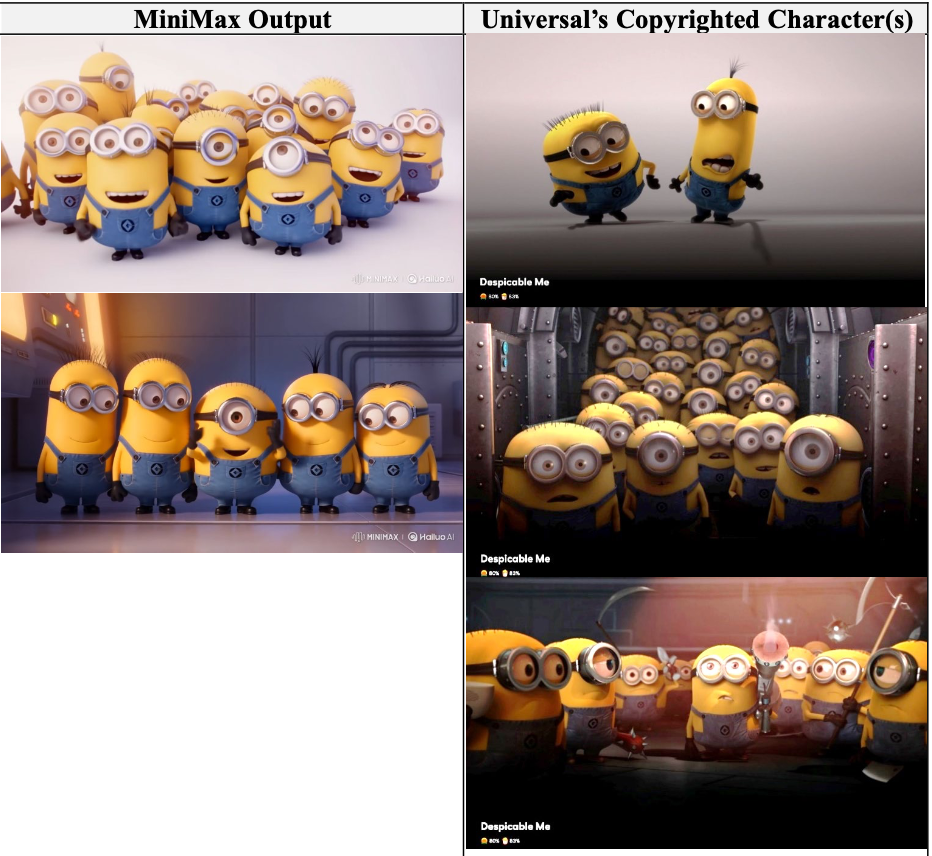Hollywood’s biggest players are joining forces to combat what they see as rampant copyright infringement in the world of artificial intelligence. Disney, Warner Bros. Discovery, and Universal Studios, representing a significant portion of the US box office, have filed a joint lawsuit against MiniMax, the Chinese company behind the generative AI app Hailuo. The lawsuit, filed in California, alleges that Hailuo pirates and utilizes copyrighted works from the studios on a massive scale, using their intellectual property to train its AI model and generate user-created content. The studios argue that Hailuo’s business model is fundamentally built upon copyright infringement, and they are seeking significant damages for the blatant disregard of US copyright law. This collaborative legal action marks a significant escalation in the ongoing battle between the entertainment industry and AI companies accused of misusing copyrighted material.
The lawsuit provides compelling evidence, including numerous screenshots of infringing images generated by Hailuo. These images range widely across the studios’ extensive IP portfolios, encompassing popular franchises such as Marvel and DC superheroes, Star Wars characters, and beloved animated figures like the Minions. The sheer volume of evidence suggests a systemic problem rather than isolated incidents.
Beyond the presentation of infringing content, the lawsuit focuses heavily on MiniMax’s alleged active encouragement of copyright infringement. The company markets Hailuo as a “Hollywood studio in your pocket,” explicitly inviting users to create videos featuring characters and elements protected by copyright. The suit includes screenshots of advertisements that clearly demonstrate this encouragement of infringing behavior. This deliberate fostering of copyright violations is a key element in the studios’ argument for willful and brazen infringement.
This legal action is the latest in a series of high-profile lawsuits filed by media companies against AI companies. Earlier this month, Warner Bros. Discovery sued Midjourney, another popular AI image generator, on similar grounds, while Disney and Universal filed a joint suit against Midjourney in June. The increasing frequency of these lawsuits reflects the growing concern within the entertainment industry about the potential impact of AI on copyright protection.
The entertainment industry isn’t alone in its concerns. The publishing world is facing similar issues. Anthropic, the creator of Claude, recently reached a massive $1.5 billion settlement in a class action lawsuit involving hundreds of thousands of authors, though the settlement was later rejected by a judge. Apple is also entangled in a lawsuit alleging the use of pirated books to train its AI model. These cases highlight a broader struggle to define the ethical and legal boundaries of AI development and its impact on intellectual property rights.
The combined might of Disney, Warner Bros. Discovery, and Universal in this lawsuit against Hailuo sends a strong message to the AI industry. The studios are not simply seeking financial compensation; they are aiming to establish a legal precedent that clearly defines the limits of acceptable AI training data and the consequences of blatant copyright infringement. The outcome of this case will likely have far-reaching implications for the future of AI development and the protection of intellectual property in the digital age.

